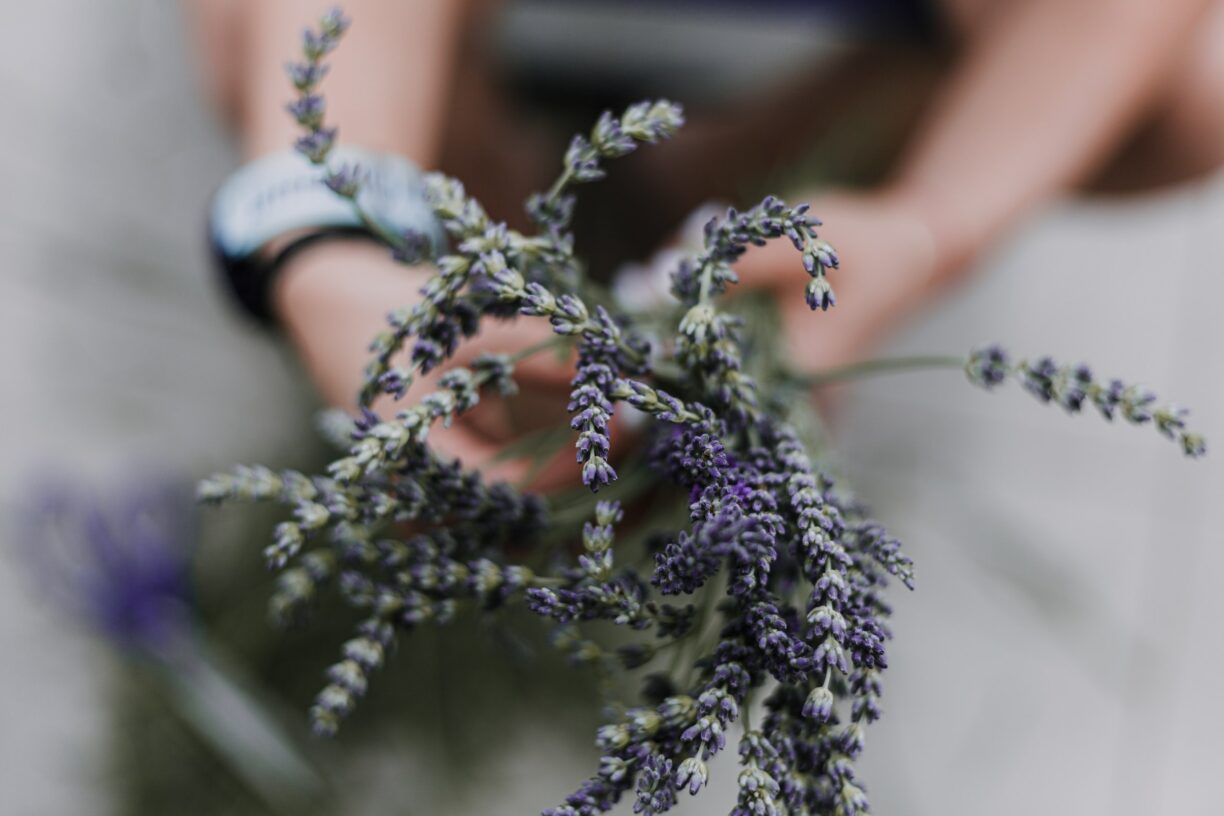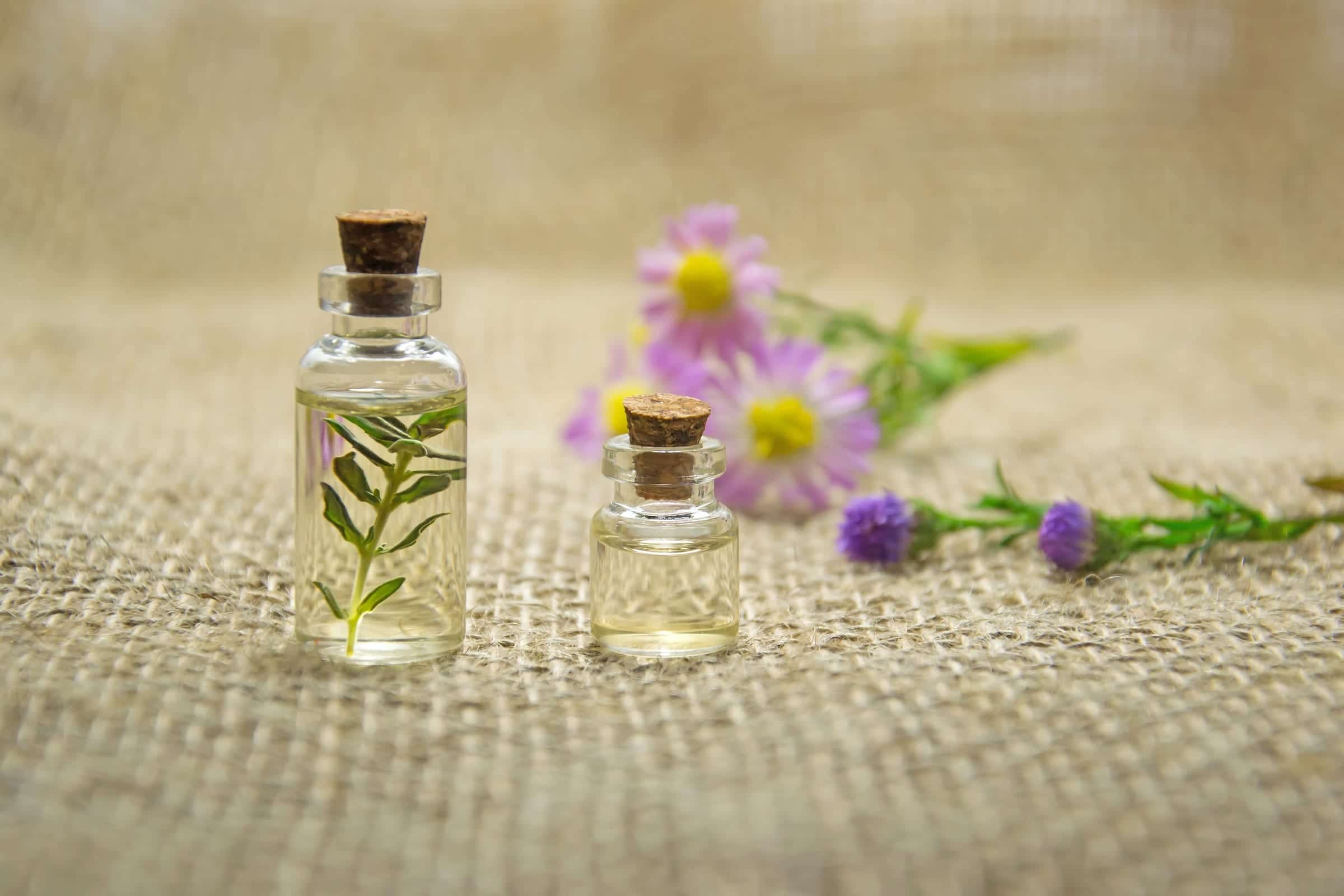Sleep is vitally linked to mental and physical wellbeing, but there are many things that get in the way of a good night’s sleep, including anxiety and stress.
Sleep expert Malik Karman from Eachnight.com reveals which relaxing essential oils give you the best night’s sleep, and how essential oils improve the quality of your sleep in general.
How Do Essential Oils Improve Sleep?
Sleep-inducing essential oils can help you relax by regulating hormones, slowing down your pulse, lowering your blood pressure, and soothing your nerves.
These oils can even reduce sleep disorder symptoms, like insomnia. Once inhaled, sleep-inducing essential oils may decrease alertness and help you fall asleep faster.
Soothe Stress and Anxiety
Stress and anxiety are contributing factors to insomnia. Feeling stressed out can make it harder to fall asleep and stay asleep.
That’s why essential oils can help, by soothing frazzled nerves and reducing stress.
Improve Depression
Essential oils aren’t a cure for depression, but they can alleviate some symptoms through aromatherapy, like uplifting your mood.
Essential oils, like lavender, can help you relax and induce sleep. Simply smelling an open bottle of essential oils can have an immediate effect—you may find it easier to breathe and feel calmer.
Other essential oils, like clary sage, can enhance your mood by regulating hormone production.
Which Essential Oils are Good for Sleep?
Specific types of essential oils are aimed to help you sleep better by relaxing tense muscles and reducing feelings of stress and anxiety.
You may find it impossible to fall asleep when you’re stressed about work or social events, but essential oils can help you wind down and fall asleep.
Lavender

Lavender oil is one of the most popular essential oils for sleep and relaxation. Its sedative effects, including a slower heartbeat and breathing rate, make it an excellent remedy for anxiety and mild insomnia.
One study found that inhaling lavender before bed increases slow-wave sleep, which is the phase of sleep in which your mind and body repairs and rebuilds itself.
More time spent in slow-wave sleep may help you become better focused and able to recall information the following day.
Roman Chamomile
Chamomile is a herb which is well known for promoting sleep and calming anxiety.
While a cup of chamomile tea before bed is good, rubbing Roman chamomile oil on the inside of your wrist might be more effective.
The skin absorbs chamomile through the skin and reaches the bloodstream faster than drinking tea.
Bergamot
Bergamot oil comes from bergamot citrus fruits. The scent of citrus fruits normally makes people feel more alert during the day, but bergamot is different.
Bergamot essential oil calms the nervous system when rubbed into the skin or inhaled through a diffuser.
Bergamot can also lower blood pressure and slow your heart rate. Bergamot is an excellent way to reduce anxiety and help you sleep.
Clary Sage
Clary sage is a natural sedative and can help you have one of the sweetest sleeps.
Diffusing the oil can calm your emotions and reduce stress, allowing you to relax before bed and fall asleep faster. Clary Sage is also known to reduce depression and anxiety.
Ylang-Ylang
Ylang-ylang oil – extracted from the ylang-ylang flower or fruit – alleviates stress by soothing the nervous system.
One study shows that inhaling ylang-ylang essential oil can lower blood pressure and heart rate.
Sweet Marjoram
Sweet marjoram oil is used to treat colds and indigestion, but it may improve sleep quality, especially if you’re a shift worker.
Research finds that sweet marjoram oil can improve sleep quality in nurses on night shifts.
The oil can regulate your heart rate, relax your muscles, and soothe your emotions.
Vanilla
Vanilla essential oil reduces restlessness, soothes nerves, and lowers your blood pressure, encouraging your body to fall asleep faster.
Vanilla has a sweet, appealing scent, almost reminiscent of baked cookies. Vanilla essential oil shouldn’t be confused with vanilla extract.
Vanilla extract is made for baking purposes only. The same is true for vanilla-infused olive oil—use it for cooking, not for relaxation!
Valerian
Valerian essential oil – extracted from the valerian root – is a natural remedy for sleep.
When inhaled, valerian essential oil slows down the nervous system and relaxes the muscles, which may help you fall asleep faster and improve your sleep quality.
Jasmine
Inhaling jasmine essential oil can lead to decreased heart rate and slowed nerve activity, encouraging your body to relax into sleep.
Jasmine oil also increases brain wave activity and positive emotions and can have an antidepressant effect.
Rose and Geranium
Rose and geranium essential oils are extracted from their respective flower’s petals.
Both have a gentle, floral scent that balances hormones and soothes headaches once inhaled.
Diffusing rose or geranium essential oils can help ground you if you’re experiencing negative emotions, like anger or sadness.
Frankincense
Frankincense can soothe your thoughts and slow down your breathing, reducing your heart rate and lowering your blood pressure.
Frankincense can also relieve stress. In a 2019 study, researchers applied a frankincense oil diluted with a carrier oil on several sleep-deprived rats. As a result, the rats’ stress levels decreased and improved sleep
How Do You Apply Essential Oils?
There are many ways to apply essential oils, but the most common method is diffusing. Other methods include applying the oil directly to your body, adding to your bath, or creating a mist.
Add to a Diffuser
Three common oil diffusers include candles, reed diffusers, and electronic diffusers.
Some manufacturers infused candle wax with essential oils—when you light the candle, the oil is released into the air.
A reed diffuser provides consistent fragrance without the use of heat or electricity.
The reeds or sticks are partially placed inside a container of oil. The reeds absorb the oil and disperse its scent into the air.
An electronic oil diffuser uses water and electricity to disperse the essential oils. Some devices give you the option to control how long or how much oil is dispersed.
These diffusers can also have a light with interchangeable colors or an automatic shut-off setting.
Directly to the Body
Applying essential oils directly to your body is a faster way of feeling the oil’s effects, but not before diluting the oil first.
We recommend mixing the essential oil with a carrier oil, like coconut oil, almond oil, olive oil, or grapeseed oil.
Your skin may be sensitive to undiluted oils, so adding a carrier oil will be more gentle.
Typical areas you can apply essential oils include hands, the bottom of your feet, chest, forehead, and the inside of your wrists.
Add to Bathwater
Adding drops of essential oils to warm bathwater can make you feel relaxed and help you unwind after a stressful day.
Soaking in warm water mixed with essential oils opens up your pores, allowing you to feel the oils’ effects. Plus, a warm bath relieves muscle tension and induces sleep.
Create a Mist
If you don’t have a diffuser, using a spray bottle is an excellent way to diffuse essential oils.
Combine a few drops of your favorite relaxing oil blend with water before spraying in the air.
You don’t have to limit the spray to your bedroom—you can spray it anywhere you want to promote calm and relaxation.
Read the Instructions
Before applying any essential oils, read the instructions first. You may experience harmful or negative effects if you misuse an essential oil.
If you’re not sure how your body will react to essential oil, run a patch test.
Rub a small amount of oil on the inside of your wrist and wait at least 24 hours. The oil is safe to use if there’s no allergic reaction, like itchy or inflamed skin.
If you want to use essential oils on your children, run a patch test before applying.
Children can be sensitive to some substances, so it’s a good idea to check first. Never use essential oils on babies less than a year old, unless advised by a doctor.





